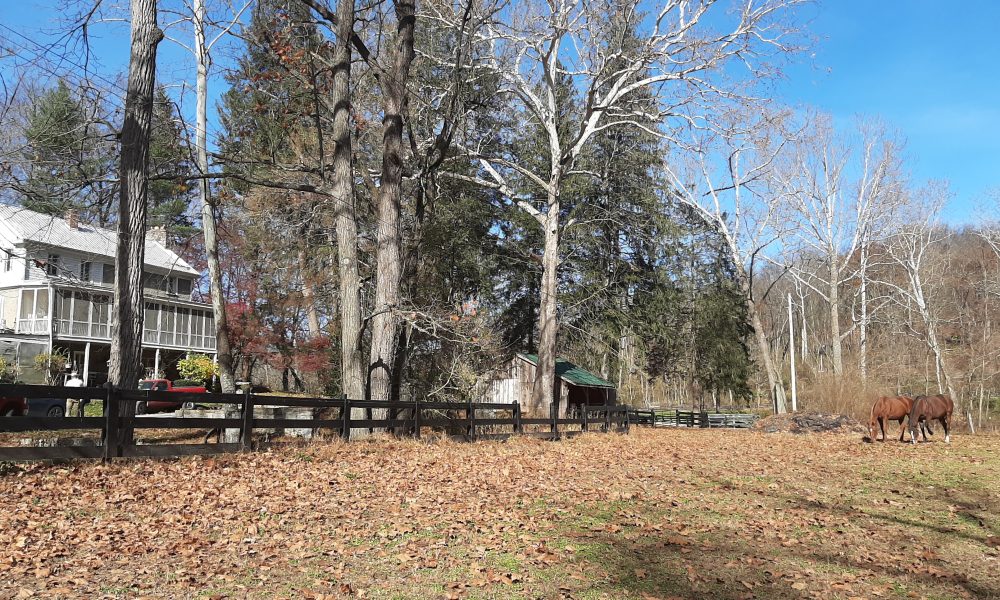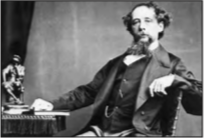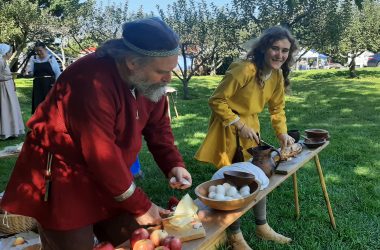by Lisa Schauer
Since 1793, Leslie Mills’ two-story farmhouse on Hook’s Mill Farm has stood beside a hook in the Potomac River where it meets the Great Tonoloway Creek.
The dam broke in the great flood of 1936, and the mill was lost in the flood of 1985, Mills, 82, explained, pointing to an undated black and white photo depicting each structure.
Originally used as a carding mill, where sheep’s wool is prepared for spinning, Hook’s Mill was later converted into a grist mill for grinding grain into flour. Local farm families would have visited the mill regularly for food and warmth.
Before its demise in ‘85, the mill also served as a small stage for community theater and musical productions, weaving a place in Hancock’s cultural history.
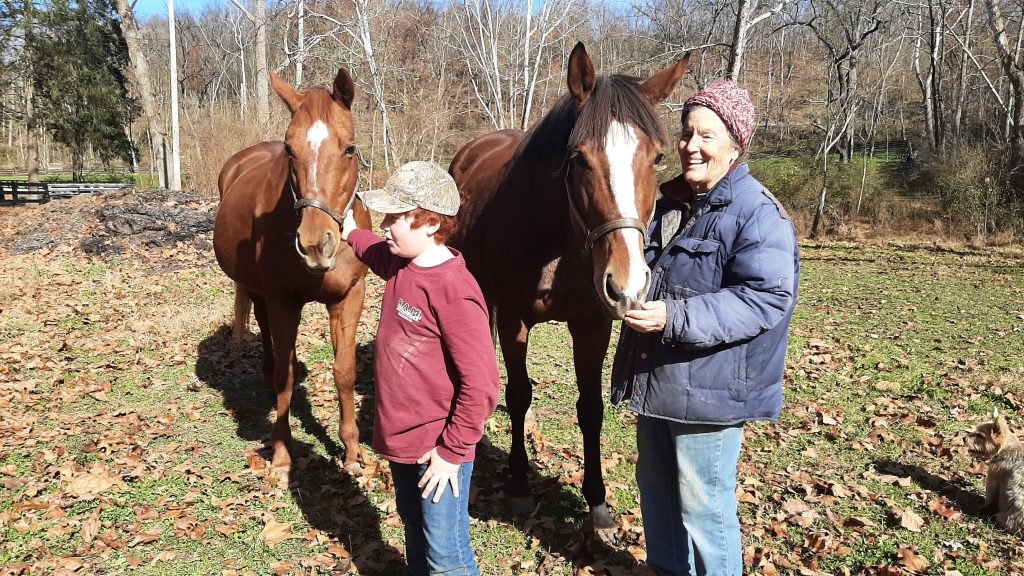
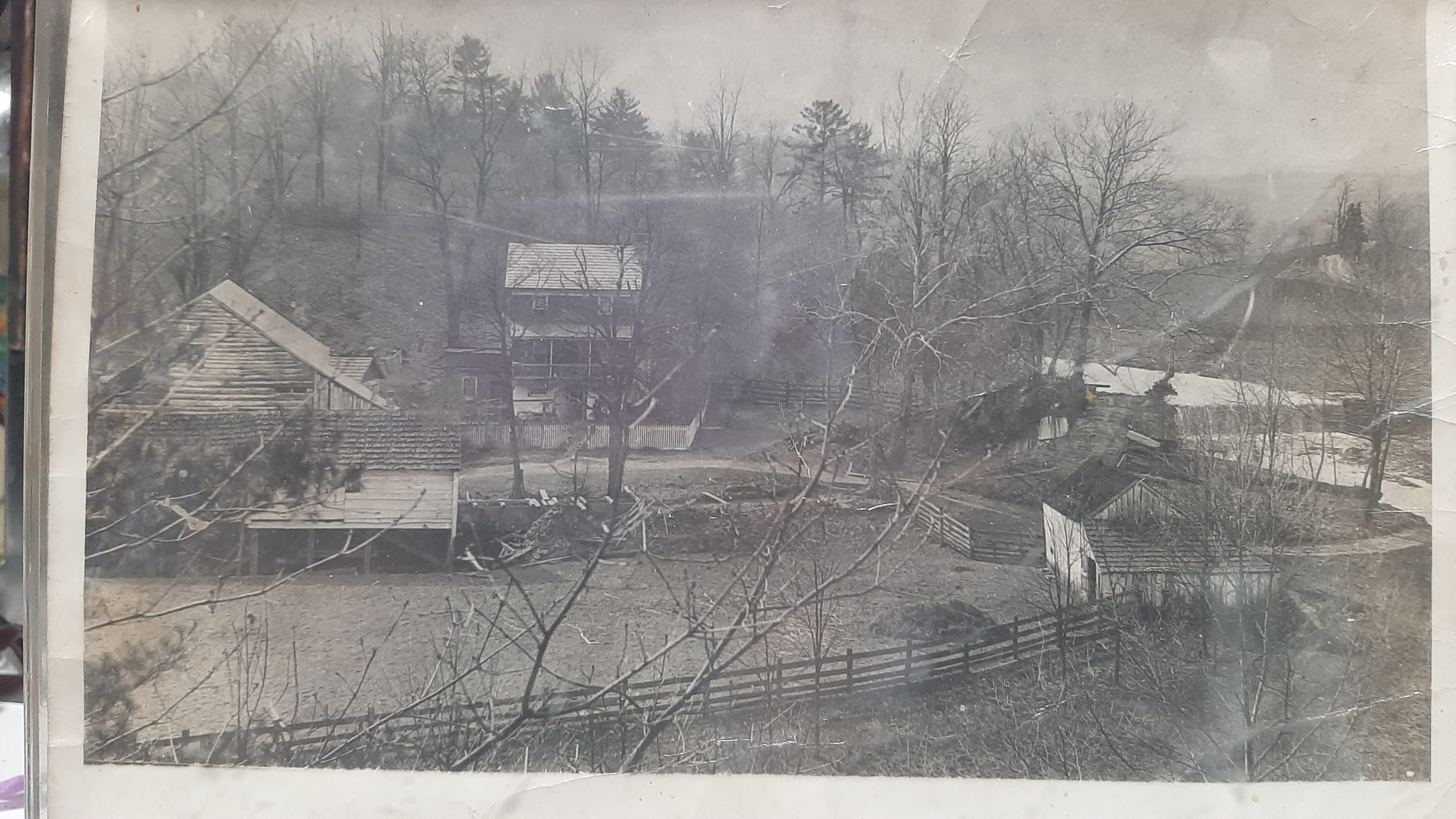
As a board member at Coolfont Re+Creation in Berkeley Springs in the 1970s, Mills recalls a colorful crowd of artists, naturalists and bohemians who danced and performed at the mill from the 1960s through the early ‘80s.
Family lore told that the roughly 130-acre property was a gift to an ancestor from Lord Fairfax, who died in 1781 and was a mentor, employer, and friend to a young George Washington, who surveyed the area at age 16.
Fairfax was landed British gentry, having received an inheritance that included a Virginia land grant along the headwaters of the Potomac River in 1719. He first visited his Virginia lands in 1735, where he enjoyed hunting in the woods that are now part of Maryland and West Virginia.
Attracted to the rustic beauty of the Blue Ridge Mountains, Fairfax was the only English titled nobleman to permanently reside in the American colonies, according to Washington’s Mount Vernon library.
Mills’ family arrived here from England by way of Cleveland, Ohio. She recalled summers spent at the farm with her grandmother, “dear” Sunny, who lived in the house and earned her own living as a music instructor and church pianist. Sunny talked of rowing out the second story during the flood of ’36, remembers Mills.
Mills moved here permanently in 1945 after her grandmother passed away. During the flood of ’85, Mills also recalls rowing a canoe through the second-floor hallway, past a Napoleonic camp bed still there in the bedroom. She is only dismayed she couldn’t make the turn to get the craft out the window like Sunny did.
Having survived the ordeal, Mills continues as owner and operator of Hook’s Mill Farm, Maryland’s birthplace of American Thoroughbreds known worldwide. She was also active in horse shows and the Maryland region of the American Pony Club before focusing exclusively on breeding thoroughbreds.
A golden mare sired by Indian Charlie, a racehorse who won the Santa Anita Derby in record time in 1998 before going on to finish third in the Kentucky Derby, grazes in the pasture outside.
Next to her stands another 20-something American Thoroughbred mare, this one sired by Tap-it, winner of the Wood Memorial before retiring to stud, breaking earnings records with four Belmont Stakes winners.
“These babies are part of the family,” Mills asserts, explaining why they’re not for sale. She still breeds thoroughbreds worth upwards of $185,000. Customers have traveled across the mid-Atlantic to Hook’s Mill Farm to purchase thoroughbreds for pleasure, show, racing or pedigree breeding.
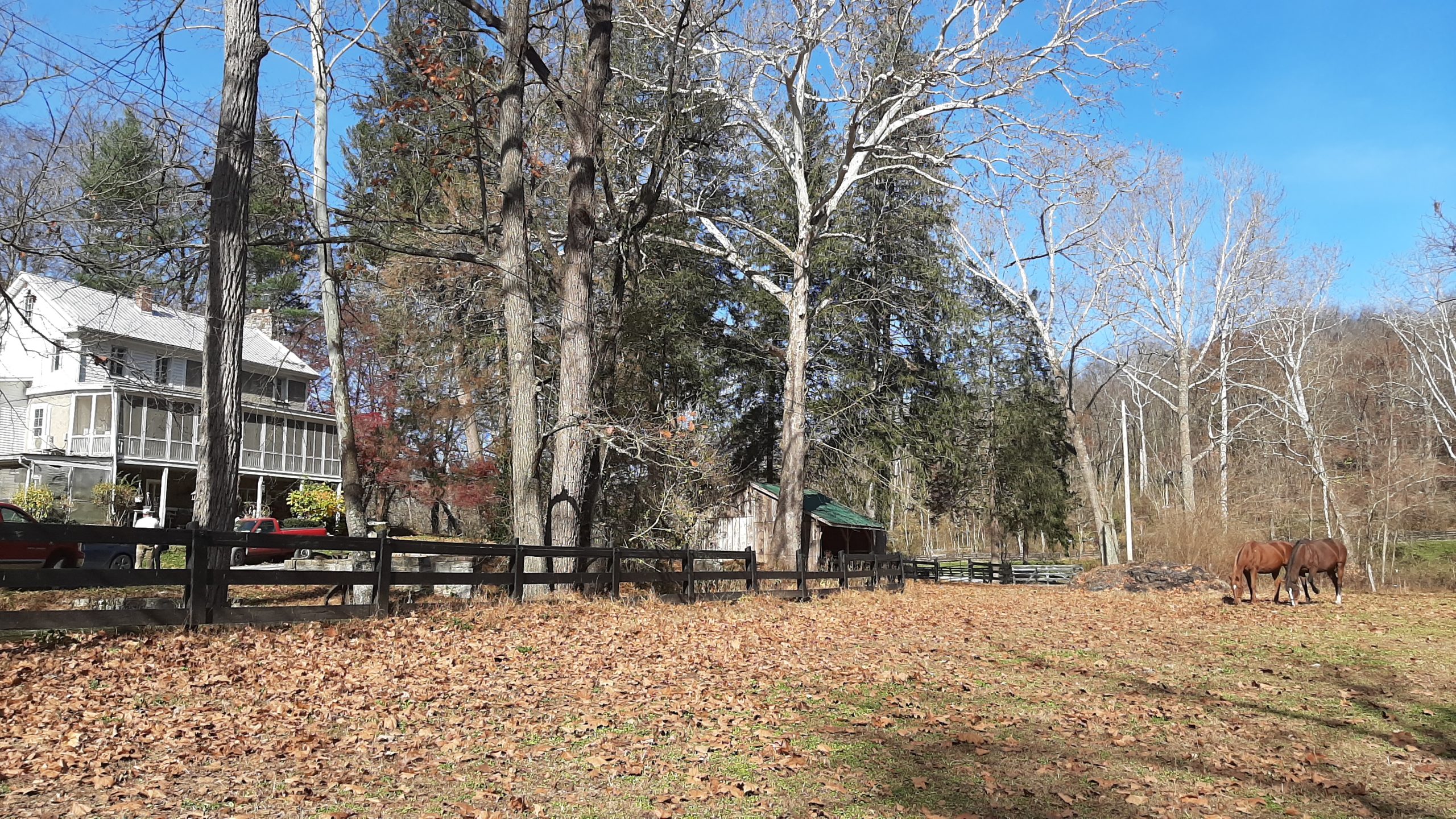
She admits to slowing down recently. But in her heyday, Mills recounts boarding a horse onto a private jet piloted by one of her trainers and bound for its new owner, the Shah of Iran.
Still found working in the barn on most days, Mills stays busy, she says with a twinkle in her eye.
“I used to ride and take lessons here when I was young,” prompted an unexpected visitor.
“When you were younger,” Mills corrected. Age is just a number, after all, to a woman who has aged remarkably little over the years.
Stern at times, Mills was known by some as a Miss Haversham type, the aristocratic yet eccentric Dickensian character. Ever gracious and insouciant, she allowed children to ramble freely through her antique-filled house, sharing what felt like the ambiance of a once-great British dynasty.
Some people mucked stalls and groomed horses at Hook’s Mill back then in exchange for riding lessons with instructors like dressage champion Charlie “Chuck” Keller, and a chance to ride in shows in Middleburg on the renowned Virginia circuit.
Entering Mills’ cluttered kitchen now, one feels as though attending a royal tea party. A bemused young solar energy technician is swept up in the moment, as Mills fills cups of English breakfast tea served with biscotti baked by a friend, discussing energy independence, enthusing her love of company.
“My family is important,” Mills’ grandson Henry Mills, 10, of Berkeley Springs says proudly, sussing out a reporter. He helps his grandmother round up her four Norwich terriers as they make their way to the pasture out front.
The stables remain largely unchanged from the mid-century when they were filled with the finest hoses ever to trod local soil.
“If you wouldn’t drink it, don’t expect them to drink it,” Mills would instruct stable hands on the importance of supplying fresh water to the clean stalls.
“No one in my family lives much past 80, so you do the math. This will be for someone else,” Mills tells the solar technician as she contemplates adding solar panels to the old farmhouse. The barn and guest house are already solar powered. The technician trods off to speak with Mills son, who stops by daily to check on his mother.
She’s holding court in the warmth of her stove-lit kitchen, the rays of the late afternoon sun stretching longer over worn wooden floors.
Driving out gingerly over a flat slatted bridge where the mill once was, with the Great Tonoloway gurgling beneath, one feels something near reverence for the colorful woven history of Hancock’s Hooks Mill Farm, promising to return one day soon.

